Introduction
Frequencity is a project to evaluate the resilience of delta urbanism through data-driven tools.
Does the Netherlands have a solution for their uncertain situation with sea-level rise? Their constant fight to develop technologies that ensure their land is kept dry, grabs the attention of the world. The trends of the population identify the major regions in consistent growth. The major urban growth happens in the Randstad region, this is the biggest delta zone. Since there are 4 major cities in this region, it attracts even more migration into this region.
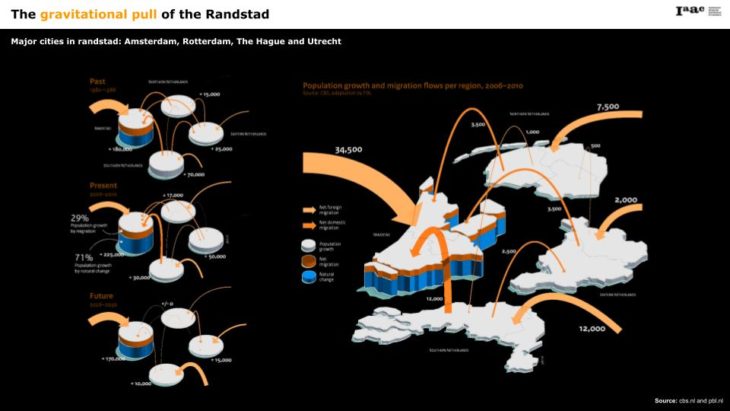
source – cbs.nl an pbl.nl
Similar to low-lying county analogy, the delta zone is under the threat of sea-level rise and flash floods. This has a higher potential threat to the existing civic infrastructures, as a low-lying country and less water infiltration in the urban lands.
To consistently upgrade, and execute strategies the Netherlands have 2 major frameworks which guide them and integrate all the existing knowledge for spatial planning and new creations and their applications. From their delta program – 2015 their call is to advance in the process of keeping their land dry than fighting, with a long-term uncertainty.
Scientific interest
Delta cities, specifically Rotterdam, thanks to its strategic directives, is the ideal testbed to provide replicable learnings towards the improvement of urban core resilience for Delta regions, through data driven tools in the context of sea level rise, flooding and driven by the local knowledge of floating solutions.
Aim
To develop a tool to evaluate the resilience of urban growth on a delta region by utilizing the water area based on its response towards different scenarios.
First we have to understand the system map of Rotterdam to have an idea how the methodology will work to address these problems.
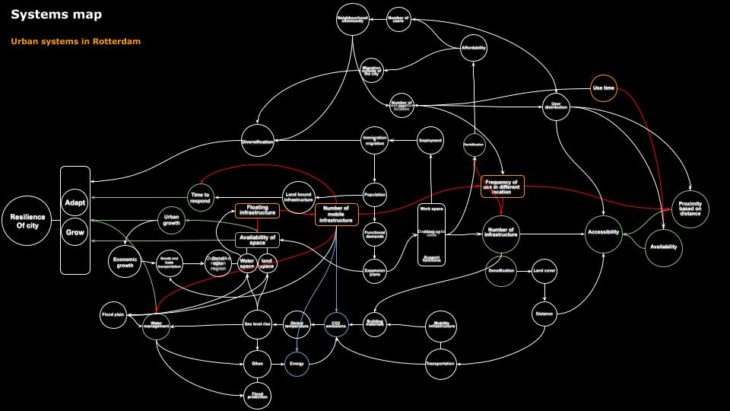
Research question
How can user demands be translated to object movement by a planning system with floating solutions?
How to optimize the infrastructure densification with the opportunity of user frequency?
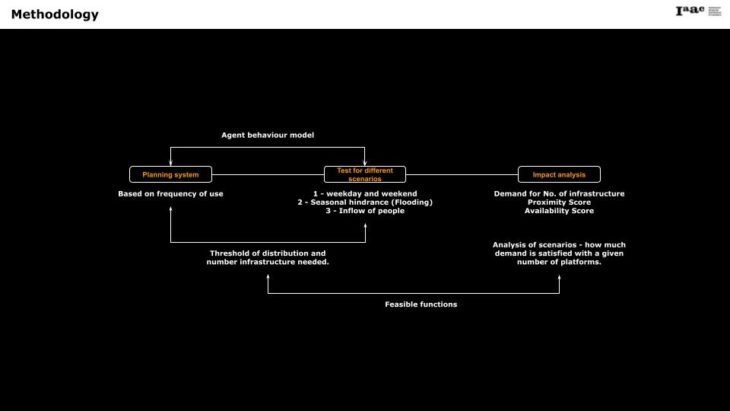
Through this methodology we arrive to different stages of defining user distribution based on activity, and the schedule of demand location and number of people.
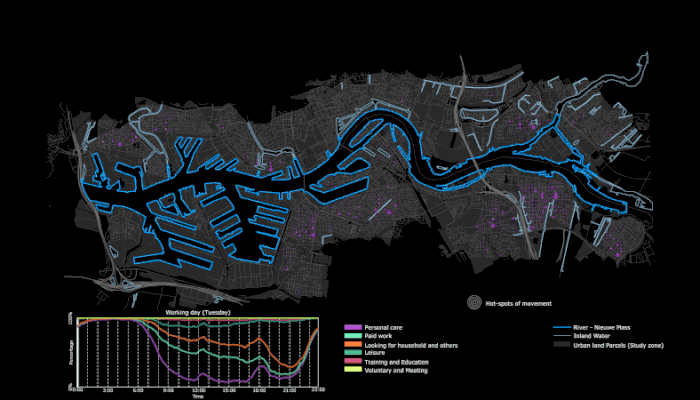

Once after determining the demand location and number of people shifting to a particular function, we train an AI model to determine the distribution.
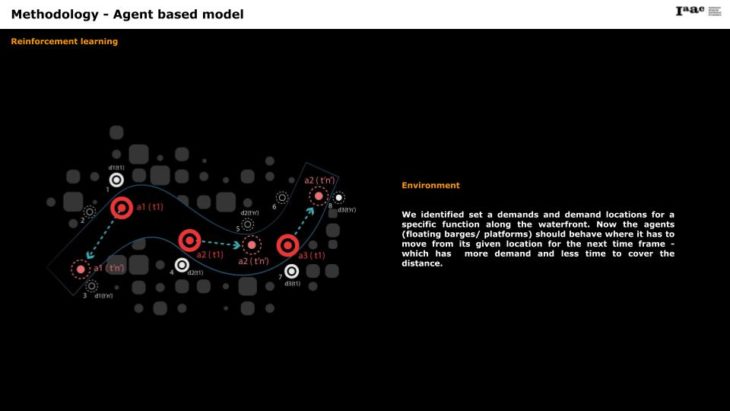
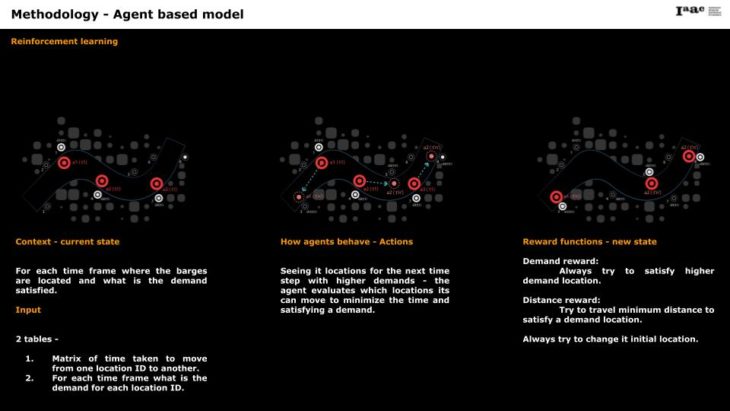
Initial trained model –
After training the model we could eventually test for other scenarios and compare the performance results to better design the system.
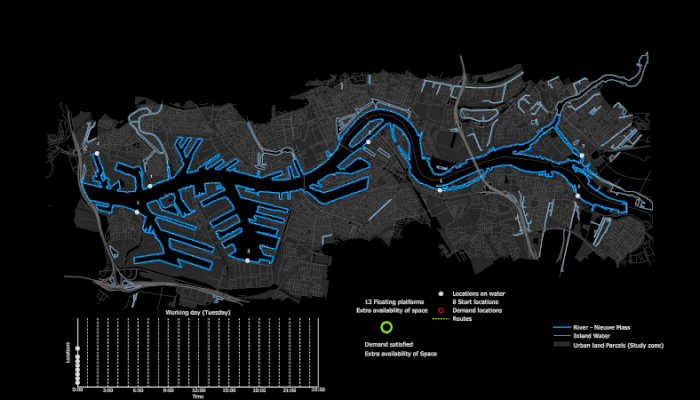
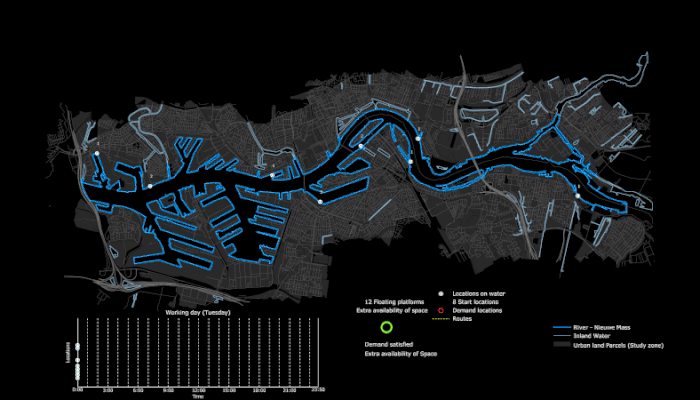
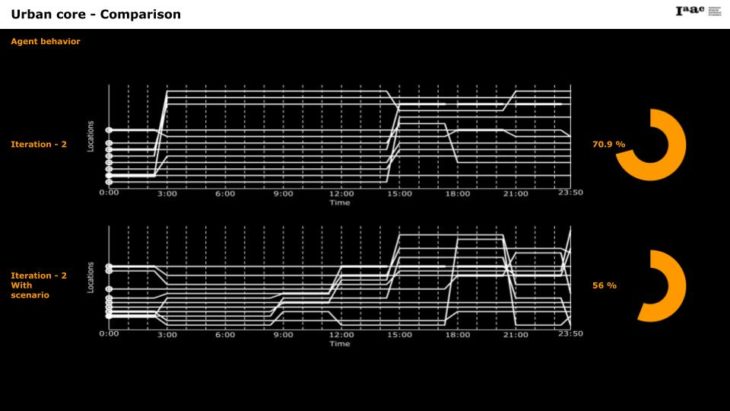
From this design methodology we can narrow down to design strategies for the transition period.




Thorough this system of design methodology and performance evaluation, the project gives a direction towards how we can slowly move towards living in the water, through floating solutions with the uncertainty. This strategy helps define the key parameters for resilience of delta urbanism.
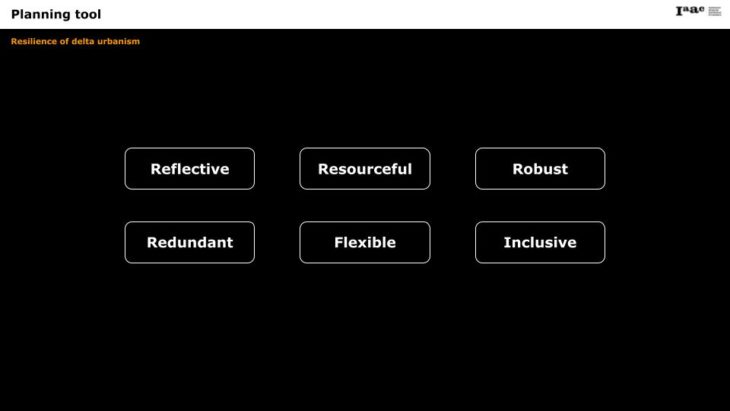
Frequencity – a data driven tool for resilience of delta urbanism is a project of IAAC, Institute for Advanced Architecture of Catalonia developed at Master in City & Technology in 2021/22 by student: Sridhar Subramani and faculty: Mathilde Marengo, Gonzalo Delacámara & Iacopo Neri